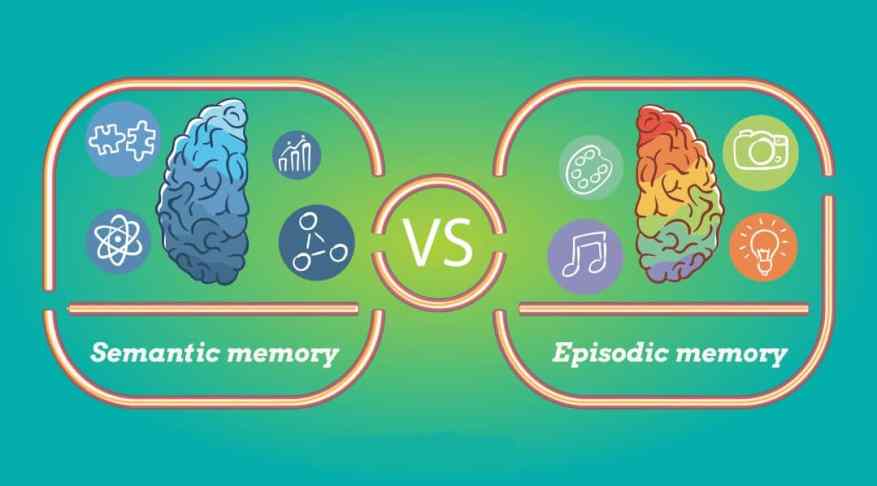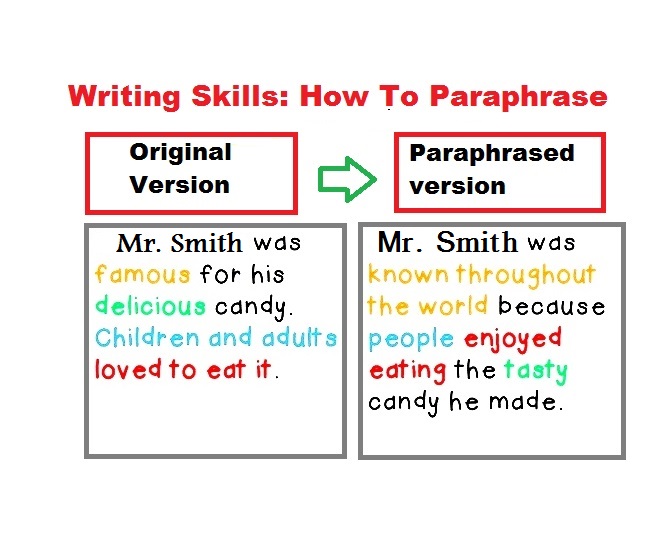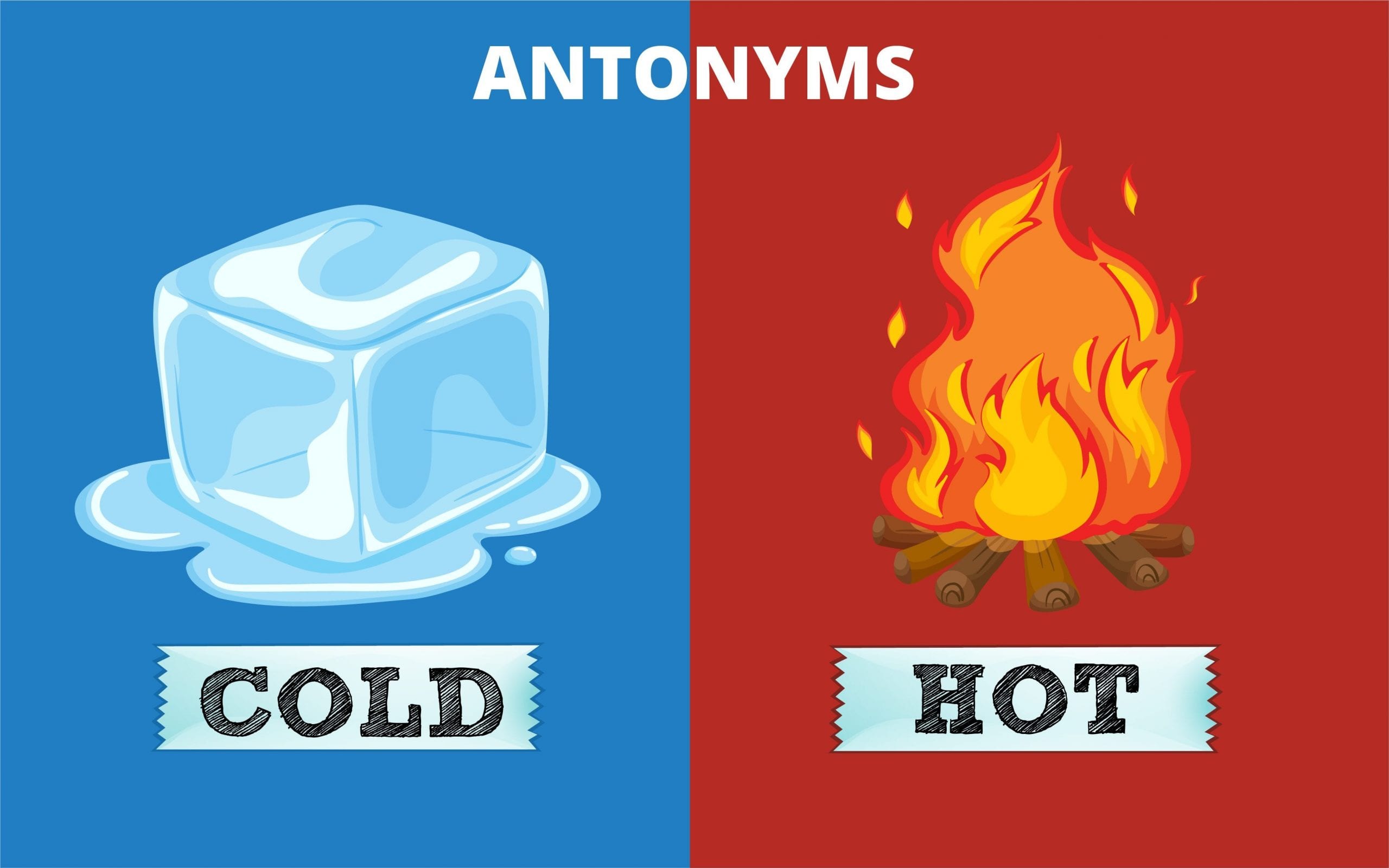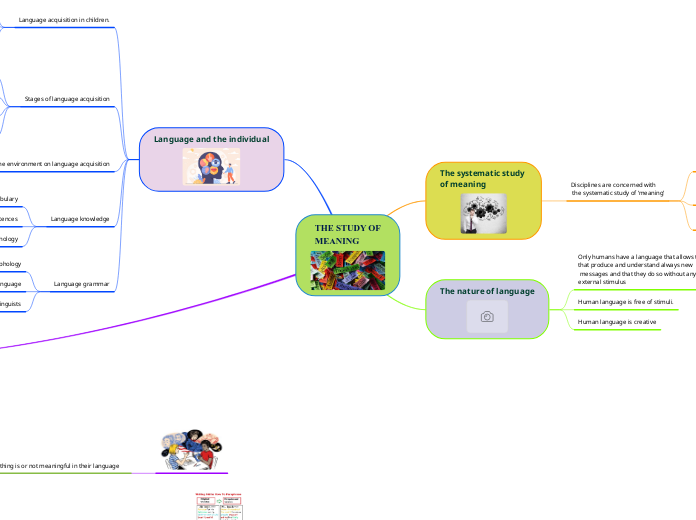THE STUDY OF
MEANING

The systematic study
of meaning

Disciplines are concerned with
the systematic study of ‘meaning’
Psychology
How the human seeks
meaning and works with them
Philosophy
How any particular fact that we know
as true is related to other possible facts
Linguistics
How language works
The nature of language

Only humans have a language that allows them
that produce and understand always new
messages and that they do so without any
external stimulus
Human language is free of stimuli.
Human language is creative
Language and the individual

Language acquisition in children.
Development of language skills
Language acquisition process
Parental imitation
Expression and communication
Stages of language acquisition
Production of two-word sentences
Development of more complex sentences
Skills in asking questions and negative statements
Imitation of sounds and words
Influence of the environment on language acquisition
Social interaction and language development
Exposure to spoken and sign language
Language knowledge
Productive and receptive vocabulary
Combining words into sentences
Knowledge of phonology, syntax and morphology
Language grammar
Semantics, phonology, syntax and morphology
Implicit and explicit knowledge of language
Description and explanation of grammar by linguists
Demonstrating semantic
knowledge

Speakers can make known to other speakers their

Thoughts

Speakers must know if something is or not meaningful in their language
Speakers agree when two sentences have the same meaning and when they don't.

Speakers agree when two words havethe same meaning

Students recognize when sentences are contradictory.
Students recognize when words have different meanings.

Synonyms and antonymous must have some common to be the same or different.
Some sentences have two meanings. It is called ambiguous.
Speakers know how language is used when people interact, that is to say, for a question, there will be a lot of possible answers.
Sentences or statements may be related so that one is true the other must also be true.

Speakers know that a message in a sentence may presuppose other pieces of knowledge.
This hability
requires
Vocabulary knowledge
Pronunciation Knowledge
Meaning of the things
